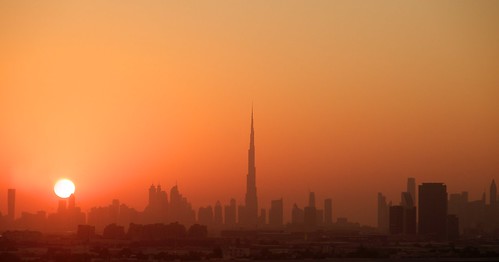According to recent reports concerning the impact of oil prices, the
UAE’s foreign and financial position will be manageable due to the country’s
account surplus (12.3%) and high GDP (6.8%).
Due to the UAE’s diverse economy and resources, the country have managed
to maintain its external oil price at approximately $64 per barrel-according to
its 2.6 Million Barrels Per Day (mbpd) during 2014,
although its financial oil price has decreased steadily during the last three
years from $93/bbl to $79/bbl
The diversification of the economy and the composition of its resource
base have allowed the UAE to keep its external breakeven oil price around $64
per barrel, based on exports of 2.6 mbpd in 2014, while its fiscal breakeven
oil price has fallen from $93/bbl to $79/bbl over the past three years.
Therefore, on the basis that UAE’s oil exports remain steady over the
next year or so, it is predicted that the UAE will maintain its large account
surplus as long as the price of oil does not drop below $64/bbl.
Due to the UAE’s continuous efforts to broaden its economic sectors and
structure as well as expand its non-hydrocarbon dependent sectors, its economy
has grown considerably.
The GCC countries face challenges due to the drop of oil prices because
their diversification of export and financial revenue sources are limited, thus
their economies extremely depend of the price of oil. Nonetheless, the UAE is
the exception, as it is the best equipped among the GCC to face the drop of oil
prices and the most competent when it comes to adapting its economy to the
changes occurring in the international oil market.
Although the UAE’s bank sector liquidity may be influenced, the
country’s Loan Deposit Ratio (LDR) remains well below 100%, its government
support as well as the corporate sector’s deleverage schemes will further aid.
The non-hydrocarbon sector contribution to the UAE’s general GDP has
increased immensely during 2000-2003, from 44.7% to 61.1%. The government’s
efforts to diversify its economy and promote non-dependent hydrocarbon sectors
has paid off and helped in increasing the UAE’s non-oil GDP. After a climatic
rise in 2009, where non-oil GDP reaches 30.6%, the rate dropped by 2013 to
25.3%. Although the non-oil GDP remains high, when compared to the 56.6%
non-oil GDP in Saudi Arabia, the public sector’s lessening efforts to enhance
the UAE’s activity within the economy is highlighted.
The UAE’s decreases focus and dependency on oil is mirrored by the
increase in the country’s exports and financial revenues not attributed to
oil-related activity and sector. This fact is especially highlighted by the
increased investment income generated from net foreign assets as well as the
significant non-oil exports of both goods and services, especially evident in
Dubai.
On a financial note, it is anticipated that Abu Dhabi will restrict its
spending by cutting subsidies and re-examining investment projects as well as
reducing the amount of funds the city loans its neighboring countries. In this
way, the UAE’s combined budget will be maintained at a surplus of 6.1% of GDP
in 2014 and 5.4% of GDP in 2015.
It is evident that UAE’s financial competency has strengthened and its
buffers have been boosted incredibly. The UAE’s gathering of great foreign and
financial surpluses over the last 10 years as well as the government’s
management of the country’s net foreign assets have aided to boost its foreign
exchange reserves located in the Central Bank as well as enhance Abu Dhabi’s
Sovereign Wealth Fund (ADIA) to approximately 120% of the country’s GDP.
The nation’s public debt is lower than 12% of its overall GDP, thus
allowing the UAE to obtain further financial help if required. The UAE’s
banking sector is in the position to help the UAE’s economy grow, regardless of
the drop in oil prices. The bank sector’s improved performance reflects their
strength and ability to help the UAE’s growth.

No comments:
Post a Comment